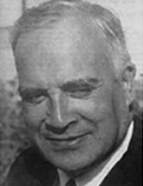

This topic became the foundation of a trilogy he developed throughout his entire career as a researcher: 1. Reflexões sobre a origem e formação de Portugal [Reflections on the origin and formation of Portugal], Coimbra, 1962 [assessment for the academic title of agregado]; 2. Contribuição para o estudo das origens do povo português [Contribution to the study of the origins of the Portuguese people], Sá da Bandeira, 1972. 3. Formação do Estado Português [Formation of the Portuguese State], Trofa, 1989.
TSS's attraction to the problem of 'origins' (of Portugal, of the people, of nationality, of municipal institutions, of the state) in the search for deep and distant roots for Portuguese medieval historical problems is notorious. He did so, not in the naive belief that the beginning explains everything, as Marc Bloch criticised, but by following the archaeological, ethnographic, and anthropological work of Martins Sarmento, Leite de Vasconcelos, Alberto Sampaio, Mendes Correia, and other scholars, seeking more reliable information, drawing on interpretative lines (sometimes divergent) from the school to which he belonged, and which prompted his teachers and colleagues to engage in debates on similar issues: Damião Peres, Como nasceu Portugal [How Portugal came to be] (1938) or Paulo Merêa, De ‘Portucale’ (civitas) ao Portugal de D. Henrique [From 'Portucale' (civitas) to the Portugal of King Henrique], (1943, would have a reworked edition in 1967). Perhaps he was doing so in response to the call to find a solid historical basis for the celebration of the centenary of the foundation and restoration of Portugal, which would take place in 1940. Portugal was, from its origins, a country with a missionary vocation and fidelity to this core tradition of the national spirit was, in his view, the right course for its history. Well integrated into the Estado Novo, TSS found in history the justification for his political-ideological stance, aligning with the nation's leaders ("A Tradição histórica portuguesa no pensamento político de Salazar" [The Portuguese historical tradition in Salazar's political thought], 1966).
This work is financed by national funds through FCT - Foundation for Science and Technology, I.P, in the scope of the projects UIDB/04311/2020 and UIDP/04311/2020.
